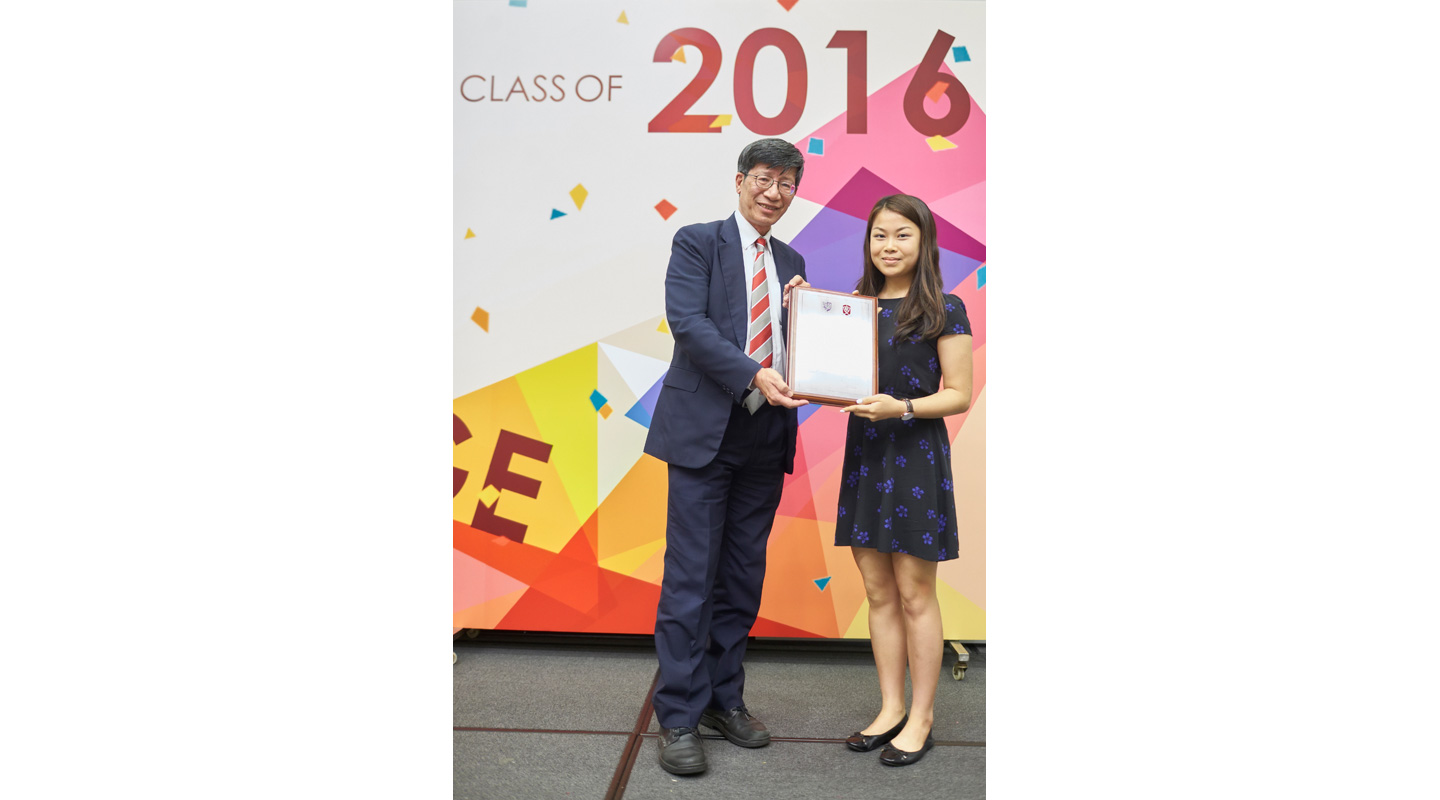Carissa Ma—In Love with Literature

Carissa Ma
- Graduate of BA Programme in English and MA Programme in English (Literary Studies), CW Chu College
- Recipient of Esther Yewpick Lee Millennium Scholarship
- Pursuing a Master of Studies in English at the University of Oxford from October 2017
How do you feel about being awarded the Esther Yewpick Lee Millennium Scholarship?
I am greatly honoured. My family can’t afford the high costs of studying abroad, not to mention Oxford. The scholarship covers full tuition fees, transportation expenses to and from the UK, as well as a stipend. I can’t believe my dream has come true.

Why did you choose to study English?
Reading has been the best entertainment for me since I was a child. I read Chinese books at first and soon it became a habit. As I entered secondary school, I used to go to the school library looking to expand my reading list. From then on, I fell in love with English fiction. I must also thank an English teacher of mine who showed me that studying English literature could be enjoyable.
What are your views on all the top scorers in this year's Diploma for Secondary Education exams going into medicine?
To me, interests should come first when considering one’s field of study. It’s only then that learning can bring enjoyment no matter how heavy the study load is. What one has learnt will turn to a lifelong asset. One would feel happiness but not pressure. I just can’t see how one can derive satisfaction from one’s studies when what one cares about is a career in future. Some may think studying the arts and the humanities is useless but I beg to differ. These subjects in fact have great impact on broadening one’s horizons and strengthening one’s moral character and whole-person development.
Why are you fond of writing English poems? Which poem of yours do you like the most?
Writing poems not only can polish my English skill but is also a relatively free way to express my feelings. I started to write English poems in high school and it’s now a hobby. I did submit my works to Cha, Hong Kong’s first online English literary journal. I also had a recitation at the ‘Open mic’ event of the Peel Street Poetry.
I chose the following poem as it is an honest portrayal of my constant struggle with writer's block, which one has to learn to embrace and accept as part of the creative process.
What poetry is like for a frustrated poet
Most days, poetry is
a brew like crude oil,
sitting obsolete in a dirt-blue earthenware;
it is a watered down love letter
typed in a bad font;
it is a dense overcast November sky,
the colour of a fading bruise;
it is cheap paperbacks with insistent covers,
or silver-plated flatware polished to an unnatural shine;
it is an empty berth, hungering for a ship
that would not dock for another eternity;
it is an orphaned shirt
in a grief-ridden house.
Most days, poetry is a vision out of legend,
a supernatural silence.
You were first a residential student and then a resident tutor at CW Chu College. Did you see your college life differently?
I’m glad to be one of the first cohort of CW Chu College. The small College makes it easier to develop closer relationships between teachers and students. The College is like a big family and my college life was magnificent! Prof. Kenneth Young, Founding Master, and Prof. Wong Suk-ying, former Dean of Students, knew and cared for every one of us academically and in daily life. I enjoyed it no less in a different role when I became a resident tutor. Of course I had to assist the warden in hostel management matters.

Why did you choose ecocriticism as your master’s studies theme? What do you expect to encounter in Oxford?
Inspired by Prof. Grant Hamilton, my master’s thesis supervisor, I became interested in ecocriticism which is the study of literature from the perspective of the entire ecology instead of the human’s. I would like to learn more about it.
I expect meeting many talents from different cultures. It will expand my network and help me develop further. Meanwhile, I have to work extremely hard.
Any plans upon graduation from the master’s studies?
I plan to pursue doctoral studies and return to Hong Kong to teach and continue to do research work.
This article was originally published in No. 503, Newsletter in Sep 2017.

